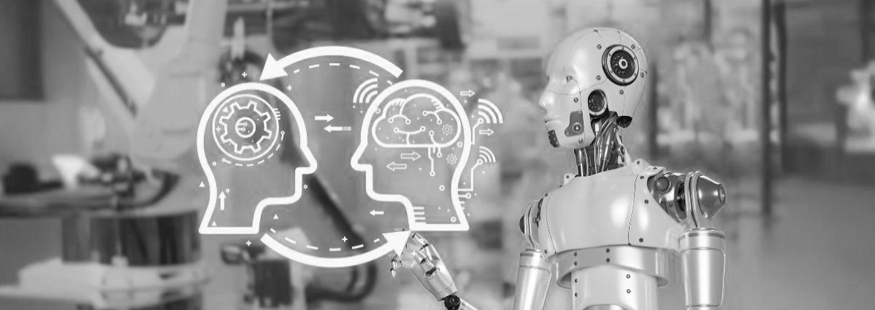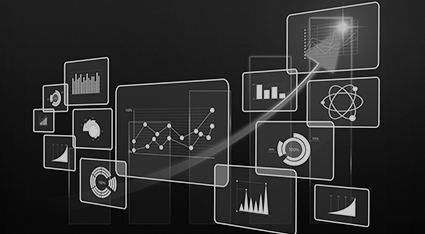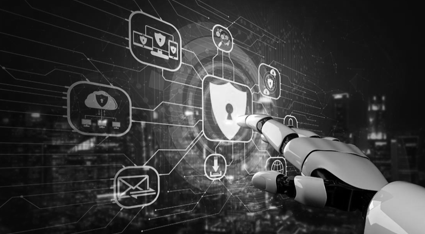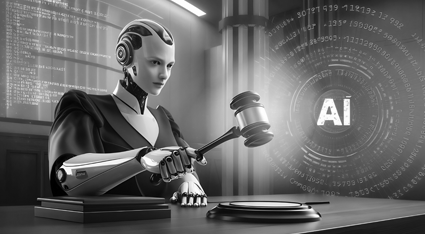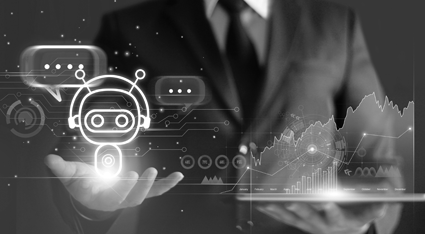Introduction
The future of work is here, and AI is at the center of this transformation. Automation is changing the nature of jobs, reshaping workforce dynamics, and redefining employee roles across industries. AI is not just replacing repetitive tasks—it’s augmenting human capabilities, allowing workers to focus on higher-value activities.
In 2025, businesses that embrace AI-driven workforce solutions will gain a competitive edge by enhancing employee productivity, streamlining operations, and enabling continuous upskilling. The key to success is not resisting AI, but learning how to work alongside it.
How AI is Changing Workforce Dynamics
AI-Assisted Jobs & Augmented Workflows
AI is automating routine tasks such as data entry, customer support, and compliance monitoring, allowing employees to focus on problem-solving, strategy, and innovation. AI-assisted tools enhance productivity by providing real-time recommendations and optimizing workflows.
The Rise of AI-Augmented Roles
As AI takes over repetitive functions, new job roles are emerging. AI trainers, AI ethicists, and automation specialists are becoming crucial to managing, training, and improving AI systems. Instead of replacing jobs, AI is creating opportunities for workforce evolution.
AI and Decision-Making in the Workplace
AI-powered analytics enable data-driven decision-making by providing real-time insights into business operations, workforce performance, and customer behavior. Leaders who leverage AI for strategic decision-making can respond to market changes faster and more effectively.
Key Benefits of AI in the Workplace
Increased Productivity & Efficiency
AI eliminates time-consuming manual tasks, allowing employees to focus on high-impact work that drives business growth.
Enhanced Workforce Upskilling & Reskilling
AI-powered learning platforms help employees acquire new skills, adapt to technological changes, and stay competitive in an evolving job market.
Improved Work-Life Balance & Employee Satisfaction
Automation reduces workload stress, optimizes scheduling, and enhances work-life balance by allowing employees to focus on meaningful tasks instead of mundane processes.
AI-Driven HR & Talent Management
AI-powered recruitment tools analyze resumes, predict candidate success, and streamline hiring processes, improving talent acquisition and employee retention.
How Businesses Can Prepare for AI-Powered Workplaces
Invest in AI-Powered Workforce Tools
Organizations should deploy AI-driven collaboration tools, task automation platforms, and digital assistants to enhance employee productivity.
Develop a Workforce Upskilling Strategy
Businesses must implement AI-driven learning programs that help employees acquire AI-related skills, ensuring workforce adaptability.
Foster a Culture of AI Adoption
Leaders should promote AI adoption by demonstrating its benefits, addressing concerns, and encouraging employees to embrace AI-driven innovations.
Align AI with Business Goals & Workforce Strategies
AI should be integrated into HR, operations, and business strategies to create a seamless transition towards an AI-powered workplace.
Challenges in AI-Driven Workforce Transformation
Resistance to AI Adoption
Employees may fear job displacement due to AI automation. Transparent communication and reskilling programs are key to easing concerns.
Data Privacy & Ethical AI Use
AI-driven workforce management must comply with ethical standards and data privacy regulations to protect employee information.
Managing the Human-AI Balance
While AI optimizes efficiency, businesses must ensure that human oversight remains central to decision-making and creative problem-solving.
The Future of AI in the Workplace
AI is not replacing workers—it’s redefining how they work. The organizations that embrace AI-powered workforce transformation will drive innovation, improve efficiency, and create new opportunities for employees.
The future of work is AI-augmented, and businesses must prepare by integrating AI into their workflows, upskilling employees, and adapting to a dynamic workforce landscape. The key to success is collaboration—between humans and AI—to build a smarter, more efficient workplace for the future.

